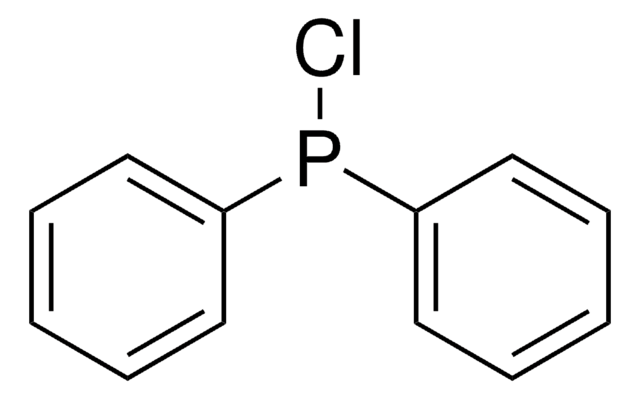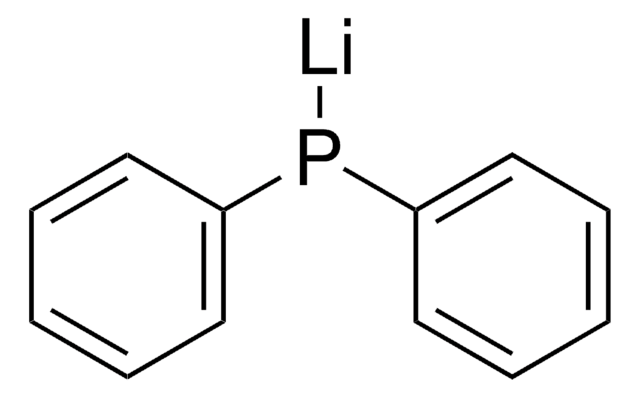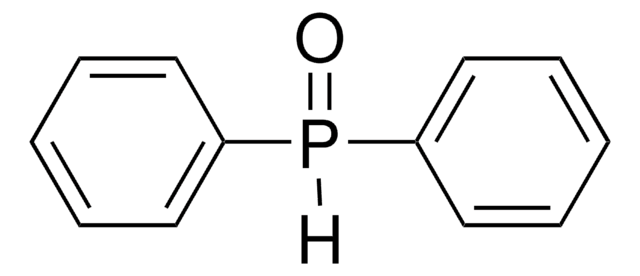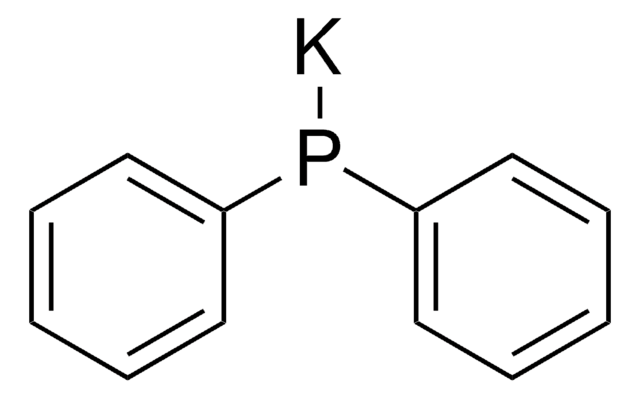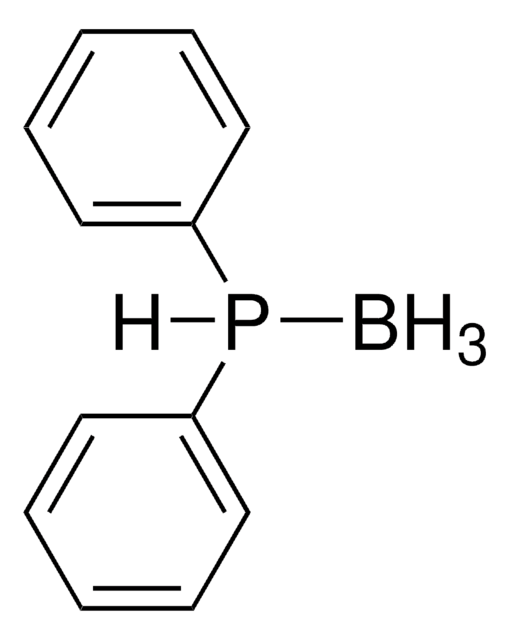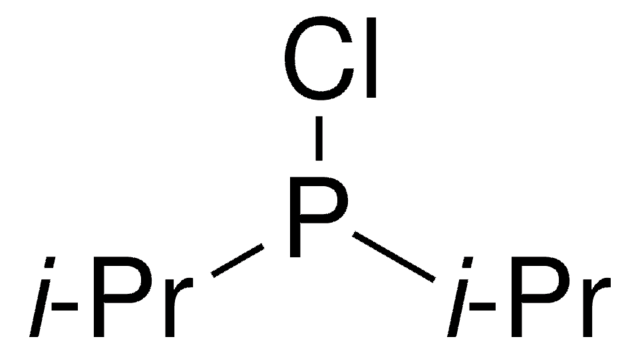About This Item
Recommended Products
vapor pressure
2 mmHg ( 110 °C)
Quality Level
Assay
98%
form
liquid
reaction suitability
reaction type: Buchwald-Hartwig Cross Coupling Reaction
reaction type: Heck Reaction
reaction type: Hiyama Coupling
reaction type: Negishi Coupling
reaction type: Sonogashira Coupling
reaction type: Stille Coupling
reaction type: Suzuki-Miyaura Coupling
reagent type: ligand
refractive index
n20/D 1.625 (lit.)
bp
280 °C (lit.)
density
1.07 g/mL at 25 °C (lit.)
functional group
phosphine
SMILES string
C1(PC2=CC=CC=C2)=CC=CC=C1
InChI
1S/C12H11P/c1-3-7-11(8-4-1)13-12-9-5-2-6-10-12/h1-10,13H
InChI key
GPAYUJZHTULNBE-UHFFFAOYSA-N
Looking for similar products? Visit Product Comparison Guide
Related Categories
Application
Signal Word
Danger
Hazard Statements
Precautionary Statements
Hazard Classifications
Eye Irrit. 2 - Pyr. Liq. 1 - Skin Irrit. 2 - STOT SE 3
Target Organs
Respiratory system
Storage Class Code
4.2 - Pyrophoric and self-heating hazardous materials
WGK
WGK 3
Flash Point(F)
230.0 °F - closed cup
Flash Point(C)
110 °C - closed cup
Personal Protective Equipment
Regulatory Listings
Regulatory Listings are mainly provided for chemical products. Only limited information can be provided here for non-chemical products. No entry means none of the components are listed. It is the user’s obligation to ensure the safe and legal use of the product.
FSL
Group 3: Spontaneously combustible substances and water- reactive materials
Organic metal compounds (except alkyl aluminum and alkyl lithium)
Hazardous rank I
1st spontaneously combustible materials and water reactive materials
JAN Code
252964-BULK:
252964-50G:
252964-10G:
252964-1KG:
252964-10G-BULK:
252964-50G-BULK:
252964-VAR:
Choose from one of the most recent versions:
Already Own This Product?
Find documentation for the products that you have recently purchased in the Document Library.
Our team of scientists has experience in all areas of research including Life Science, Material Science, Chemical Synthesis, Chromatography, Analytical and many others.
Contact Technical Service